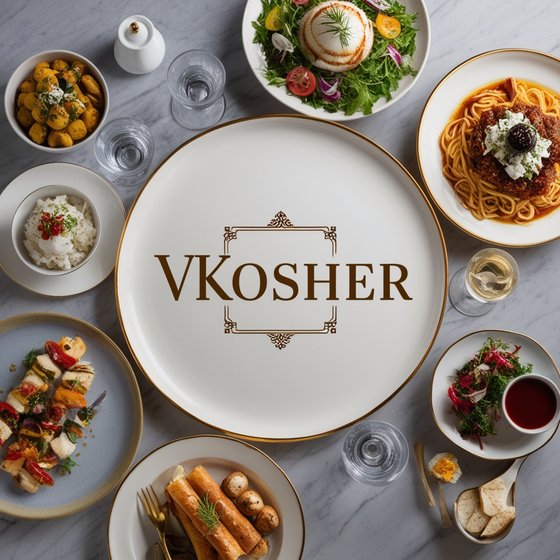Understanding Kosher Olives
Kosher olives are more than just a type of olive; they represent a careful adherence to Jewish dietary laws that ensure the food consumed is clean and permissible under Jewish law, known as kashrut. These laws are derived from the Torah, and for any food product to be deemed kosher, it must meet specific requirements set out by rabbinic authorities. Olives, being a staple in Mediterranean diets, have found a significant place in kosher dietary practices, with their production, processing, and consumption closely monitored to align with the principles of kashrut.
The Importance of Kosher Certification
For olives to be classified as kosher, they must be certified by a recognized kosher certification agency. This certification process involves several stages, each meticulously supervised to ensure that the olives meet the stringent requirements of kashrut. The kosher certification not only reassures Jewish consumers that the olives are permissible to eat but also assures them of the quality and integrity of the product. The process of certifying olives as kosher involves the inspection of the olive grove, the methods of harvesting, and the facilities where the olives are processed and packaged.
Harvesting Kosher Olives
The journey of kosher olives begins in the olive groves, where the olives are grown. For olives to maintain their kosher status, they must be harvested in a manner that complies with Jewish agricultural laws. One of the key aspects of this is the observance of the sabbatical year, known as the Shmita. Every seven years, Jewish farmers are required to let the land rest, meaning no agricultural activity is allowed, including the harvesting of olives. During this year, any olives that grow naturally are considered ownerless and can be consumed without restriction, but they cannot be harvested for commercial purposes.
Additionally, the harvesting process must ensure that the olives are not cross-contaminated with non-kosher substances or tools. This means that the equipment used in harvesting, such as baskets and tools, must be kosher and must not have come into contact with non-kosher products. The workers involved in the harvesting must also be aware of and adhere to kosher practices to prevent any inadvertent contamination.
Processing Kosher Olives
Once the olives are harvested, they undergo processing, which is another crucial stage where their kosher status is determined. Kosher laws dictate that olives, like all fruits and vegetables, must be thoroughly inspected for insects, as consuming insects is strictly forbidden under kashrut. The inspection process involves a careful examination of each olive to ensure that it is free of any insect infestation.
The processing of olives into products such as olive oil or cured olives requires the use of kosher-approved equipment and ingredients. For example, the brine solution used in curing olives must be made with kosher salt and water that has been certified as kosher. Additionally, any preservatives or additives used in the process must also be kosher-certified. The facilities where the olives are processed must undergo regular inspections by a mashgiach, a Jewish supervisor, who ensures that the kosher standards are strictly maintained.
Kosher Olive Products
There is a wide range of kosher olive products available in the market, each catering to different culinary needs while adhering to kosher standards. Kosher olives can be found in various forms, including whole olives, pitted olives, sliced olives, and stuffed olives. These olives are often used in salads, as garnishes, or as an ingredient in various dishes.
Olive oil is another significant product derived from kosher olives. The production of kosher olive oil is a delicate process, requiring strict adherence to kosher laws. The olives used for kosher olive oil must be harvested and processed under the supervision of a rabbinic authority to ensure that they remain kosher throughout the process. The olive oil must not come into contact with non-kosher products, and the equipment used in its production must be kosher-certified.
Kosher Certification Agencies
There are several kosher certification agencies that oversee the certification of olives and olive products. These agencies are responsible for ensuring that the products meet the high standards required for kosher certification. Some of the most recognized kosher certification symbols include OU (Orthodox Union), Kof-K, OK Kosher, and Star-K. These symbols are often found on the packaging of kosher olive products, providing consumers with assurance that the product is kosher.
The role of these certification agencies goes beyond just inspecting and certifying products; they also provide guidance and education to producers on how to maintain kosher standards in their operations. This includes advice on sourcing kosher ingredients, maintaining a kosher production line, and ensuring that all workers are trained in kosher practices.
The Global Market for Kosher Olives
The demand for kosher olives is not limited to Jewish communities; it extends to consumers worldwide who seek high-quality, ethically produced food products. Kosher certification is often seen as a mark of quality and purity, which appeals to a broader audience. This has led to an increase in the production and availability of kosher olives in global markets.
In countries with large Jewish populations, such as the United States and Israel, kosher olives are readily available in supermarkets and specialty stores. In other parts of the world, kosher olives can often be found in stores that cater to specific dietary needs or in online marketplaces. The global market for kosher olives is growing, driven by an increasing awareness of kosher dietary laws and the desire for food products that meet these standards.
Health Benefits of Kosher Olives
Olives are known for their numerous health benefits, and kosher olives are no exception. Rich in monounsaturated fats, olives are a key component of the Mediterranean diet, which has been associated with reduced risks of heart disease and other chronic conditions. The antioxidants found in olives, such as vitamin E and polyphenols, contribute to their anti-inflammatory properties and help protect against oxidative stress.
Kosher olives, being produced under strict dietary laws, are often perceived as being of higher quality. The rigorous inspection and certification process ensures that the olives are free from contaminants and are processed in a clean environment. This level of scrutiny adds to the appeal of kosher olives for health-conscious consumers who prioritize food safety and quality.
Cultural and Religious Significance
Beyond their nutritional value, kosher olives hold cultural and religious significance in Jewish tradition. Olives and olive oil have been used in Jewish rituals for centuries, most notably in the lighting of the menorah during Hanukkah. The menorah, a seven-branched candelabrum, was originally lit using pure olive oil in the ancient Temple in Jerusalem. Today, the use of olive oil in menorahs during Hanukkah symbolizes the miracle of the oil, where a small amount of oil lasted for eight days.
Olives are also mentioned numerous times in the Torah, symbolizing peace, prosperity, and the connection between the Jewish people and the land of Israel. The olive tree, known for its longevity and resilience, is often used as a metaphor for the endurance and faith of the Jewish people.
Sustainability and Kosher Olives
Sustainability is becoming an increasingly important factor in the production of kosher olives. Olive groves, particularly those in the Mediterranean region, are being managed with a focus on sustainable farming practices that protect the environment and preserve the land for future generations. These practices include reducing water usage, minimizing the use of chemical pesticides and fertilizers, and promoting biodiversity in olive groves.
Kosher certification agencies are beginning to take sustainability into account when certifying products. This includes evaluating the environmental impact of the production process and ensuring that kosher practices align with sustainable farming methods. As consumers become more environmentally conscious, the demand for sustainably produced kosher olives is expected to rise.
Challenges in the Kosher Olive Industry
The kosher olive industry faces several challenges, including the need to maintain strict kosher standards while meeting the growing demand for kosher products. Ensuring that every step of the production process adheres to kosher laws requires constant vigilance and the cooperation of everyone involved, from farmers to processors to certification agencies.
Another challenge is the cost associated with kosher certification. The process of obtaining and maintaining kosher certification can be expensive, which can drive up the cost of kosher olives for consumers. However, many consumers are willing to pay a premium for kosher products, recognizing the value of the certification in ensuring quality and adherence to religious principles.
Conclusion
Kosher olives represent a unique intersection of tradition, religion, and modern food production. The meticulous process of certifying olives as kosher ensures that they meet the dietary laws set out in the Torah, providing Jewish consumers with a product that aligns with their religious beliefs. Beyond their religious significance, kosher olives are also valued for their quality, health benefits, and role in sustainable agriculture.
As the global market for kosher products continues to grow, kosher olives are likely to become even more popular, appealing not only to Jewish consumers but also to anyone seeking high-quality, ethically produced food. The continued emphasis on sustainability and the strict adherence to kosher standards will ensure that kosher olives remain a staple in households around the world, symbolizing both tradition and innovation in the food industry.
Kosher olives are more than just a type of olive; they represent a careful adherence to Jewish dietary laws that ensure the food consumed is clean and permissible under Jewish law, known as kashrut. These laws are derived from the Torah, and for any food product to be deemed kosher, it must meet specific requirements set out by rabbinic authorities. Olives, being a staple in Mediterranean diets, have found a significant place in kosher dietary practices, with their production, processing, and consumption closely monitored to align with the principles of kashrut.
The Importance of Kosher Certification
For olives to be classified as kosher, they must be certified by a recognized kosher certification agency. This certification process involves several stages, each meticulously supervised to ensure that the olives meet the stringent requirements of kashrut. The kosher certification not only reassures Jewish consumers that the olives are permissible to eat but also assures them of the quality and integrity of the product. The process of certifying olives as kosher involves the inspection of the olive grove, the methods of harvesting, and the facilities where the olives are processed and packaged.
Harvesting Kosher Olives
The journey of kosher olives begins in the olive groves, where the olives are grown. For olives to maintain their kosher status, they must be harvested in a manner that complies with Jewish agricultural laws. One of the key aspects of this is the observance of the sabbatical year, known as the Shmita. Every seven years, Jewish farmers are required to let the land rest, meaning no agricultural activity is allowed, including the harvesting of olives. During this year, any olives that grow naturally are considered ownerless and can be consumed without restriction, but they cannot be harvested for commercial purposes.
Additionally, the harvesting process must ensure that the olives are not cross-contaminated with non-kosher substances or tools. This means that the equipment used in harvesting, such as baskets and tools, must be kosher and must not have come into contact with non-kosher products. The workers involved in the harvesting must also be aware of and adhere to kosher practices to prevent any inadvertent contamination.
Processing Kosher Olives
Once the olives are harvested, they undergo processing, which is another crucial stage where their kosher status is determined. Kosher laws dictate that olives, like all fruits and vegetables, must be thoroughly inspected for insects, as consuming insects is strictly forbidden under kashrut. The inspection process involves a careful examination of each olive to ensure that it is free of any insect infestation.
The processing of olives into products such as olive oil or cured olives requires the use of kosher-approved equipment and ingredients. For example, the brine solution used in curing olives must be made with kosher salt and water that has been certified as kosher. Additionally, any preservatives or additives used in the process must also be kosher-certified. The facilities where the olives are processed must undergo regular inspections by a mashgiach, a Jewish supervisor, who ensures that the kosher standards are strictly maintained.
Kosher Olive Products
There is a wide range of kosher olive products available in the market, each catering to different culinary needs while adhering to kosher standards. Kosher olives can be found in various forms, including whole olives, pitted olives, sliced olives, and stuffed olives. These olives are often used in salads, as garnishes, or as an ingredient in various dishes.
Olive oil is another significant product derived from kosher olives. The production of kosher olive oil is a delicate process, requiring strict adherence to kosher laws. The olives used for kosher olive oil must be harvested and processed under the supervision of a rabbinic authority to ensure that they remain kosher throughout the process. The olive oil must not come into contact with non-kosher products, and the equipment used in its production must be kosher-certified.
Kosher Certification Agencies
There are several kosher certification agencies that oversee the certification of olives and olive products. These agencies are responsible for ensuring that the products meet the high standards required for kosher certification. Some of the most recognized kosher certification symbols include OU (Orthodox Union), Kof-K, OK Kosher, and Star-K. These symbols are often found on the packaging of kosher olive products, providing consumers with assurance that the product is kosher.
The role of these certification agencies goes beyond just inspecting and certifying products; they also provide guidance and education to producers on how to maintain kosher standards in their operations. This includes advice on sourcing kosher ingredients, maintaining a kosher production line, and ensuring that all workers are trained in kosher practices.
The Global Market for Kosher Olives
The demand for kosher olives is not limited to Jewish communities; it extends to consumers worldwide who seek high-quality, ethically produced food products. Kosher certification is often seen as a mark of quality and purity, which appeals to a broader audience. This has led to an increase in the production and availability of kosher olives in global markets.
In countries with large Jewish populations, such as the United States and Israel, kosher olives are readily available in supermarkets and specialty stores. In other parts of the world, kosher olives can often be found in stores that cater to specific dietary needs or in online marketplaces. The global market for kosher olives is growing, driven by an increasing awareness of kosher dietary laws and the desire for food products that meet these standards.
Health Benefits of Kosher Olives
Olives are known for their numerous health benefits, and kosher olives are no exception. Rich in monounsaturated fats, olives are a key component of the Mediterranean diet, which has been associated with reduced risks of heart disease and other chronic conditions. The antioxidants found in olives, such as vitamin E and polyphenols, contribute to their anti-inflammatory properties and help protect against oxidative stress.
Kosher olives, being produced under strict dietary laws, are often perceived as being of higher quality. The rigorous inspection and certification process ensures that the olives are free from contaminants and are processed in a clean environment. This level of scrutiny adds to the appeal of kosher olives for health-conscious consumers who prioritize food safety and quality.
Cultural and Religious Significance
Beyond their nutritional value, kosher olives hold cultural and religious significance in Jewish tradition. Olives and olive oil have been used in Jewish rituals for centuries, most notably in the lighting of the menorah during Hanukkah. The menorah, a seven-branched candelabrum, was originally lit using pure olive oil in the ancient Temple in Jerusalem. Today, the use of olive oil in menorahs during Hanukkah symbolizes the miracle of the oil, where a small amount of oil lasted for eight days.
Olives are also mentioned numerous times in the Torah, symbolizing peace, prosperity, and the connection between the Jewish people and the land of Israel. The olive tree, known for its longevity and resilience, is often used as a metaphor for the endurance and faith of the Jewish people.
Sustainability and Kosher Olives
Sustainability is becoming an increasingly important factor in the production of kosher olives. Olive groves, particularly those in the Mediterranean region, are being managed with a focus on sustainable farming practices that protect the environment and preserve the land for future generations. These practices include reducing water usage, minimizing the use of chemical pesticides and fertilizers, and promoting biodiversity in olive groves.
Kosher certification agencies are beginning to take sustainability into account when certifying products. This includes evaluating the environmental impact of the production process and ensuring that kosher practices align with sustainable farming methods. As consumers become more environmentally conscious, the demand for sustainably produced kosher olives is expected to rise.
Challenges in the Kosher Olive Industry
The kosher olive industry faces several challenges, including the need to maintain strict kosher standards while meeting the growing demand for kosher products. Ensuring that every step of the production process adheres to kosher laws requires constant vigilance and the cooperation of everyone involved, from farmers to processors to certification agencies.
Another challenge is the cost associated with kosher certification. The process of obtaining and maintaining kosher certification can be expensive, which can drive up the cost of kosher olives for consumers. However, many consumers are willing to pay a premium for kosher products, recognizing the value of the certification in ensuring quality and adherence to religious principles.
Conclusion
Kosher olives represent a unique intersection of tradition, religion, and modern food production. The meticulous process of certifying olives as kosher ensures that they meet the dietary laws set out in the Torah, providing Jewish consumers with a product that aligns with their religious beliefs. Beyond their religious significance, kosher olives are also valued for their quality, health benefits, and role in sustainable agriculture.
As the global market for kosher products continues to grow, kosher olives are likely to become even more popular, appealing not only to Jewish consumers but also to anyone seeking high-quality, ethically produced food. The continued emphasis on sustainability and the strict adherence to kosher standards will ensure that kosher olives remain a staple in households around the world, symbolizing both tradition and innovation in the food industry.




